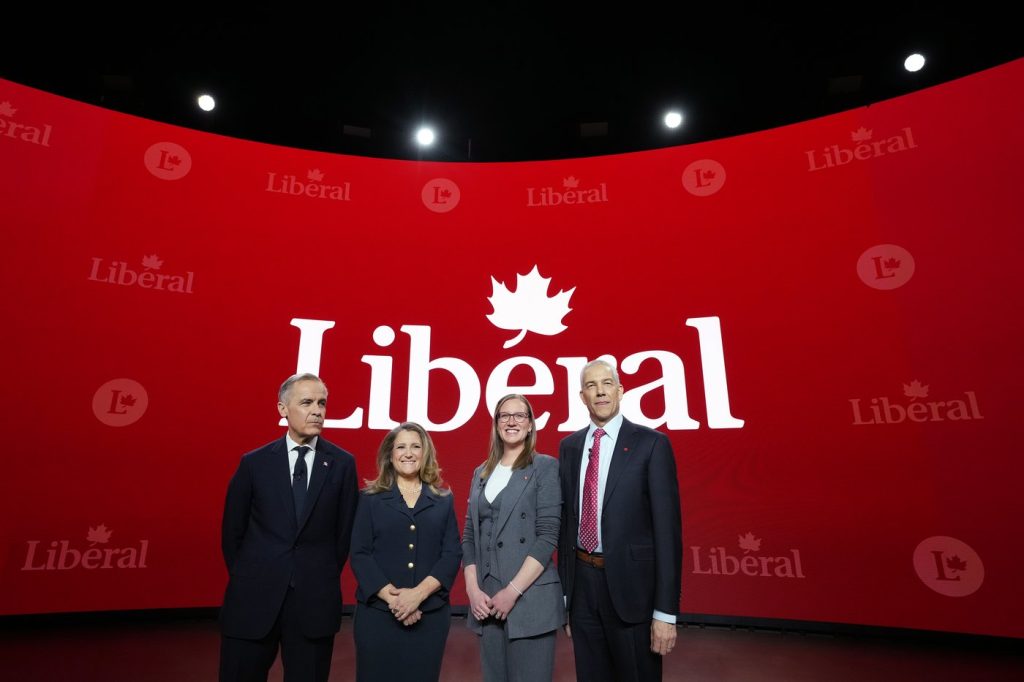MONTREAL — The Liberal leadership race is heating up as candidates prepare for the last English-language debate scheduled for Tuesday night in Montreal. This event represents a vital opportunity for the remaining contenders to directly confront one another and possibly alter the dynamics of the competition ahead of the upcoming leadership vote.
Currently, four candidates are vying for the leadership of the Liberal Party of Canada, with a notable focus on presumed front-runner Mark Carney. During the preceding French-language debate held on Monday night, Carney appeared more guarded and admittedly struggled with his speaking in French, a factor that could impact perceptions of his candidacy.
Despite Carney's rise in the polls, his competitors opted for a strategy of cautious engagement rather than aggressive attacks. Notably, Chrystia Freeland, one of the candidates, came to Carney's aid during a moment of difficulty when he mismanaged a statement regarding Hamas and the ongoing war in Gaza. This assistance raises questions about the overall dynamics of the race and whether elements of camaraderie might hinder more direct competition.
As anticipation builds, Liberal party members are set to begin casting advance votes starting Wednesday for the candidate who will ultimately succeed Justin Trudeau as party leader. The new leader will be announced on March 9, 2025, marking a significant transition in the party's structure and leadership.
With the stakes high and the political landscape rapidly evolving, Tuesday's debate is poised to be crucial. Candidates will need to leverage this platform not only to solidify their positions but also to engage party members just days before they are eligible to cast their votes.
The Liberal Party's leadership contest is increasingly seen as a pivotal moment in Canadian politics. Candidates must navigate not only their own campaign strengths and weaknesses but also the shifting sentiment of party members as they prepare to choose their new leader. The outcome of this race could have far-reaching implications for the Liberal Party's future direction and its ability to connect with the electorate in the wake of Trudeau's tenure.
As the political atmosphere intensifies, all eyes will be on the candidates during the final debate, with the hope that this will provide clarity and insight into who is best positioned to lead the party into a new era. In the coming days, the Canadian political landscape may witness a notable shift, depending on how effectively the candidates can engage and resonate with Liberal party members.










